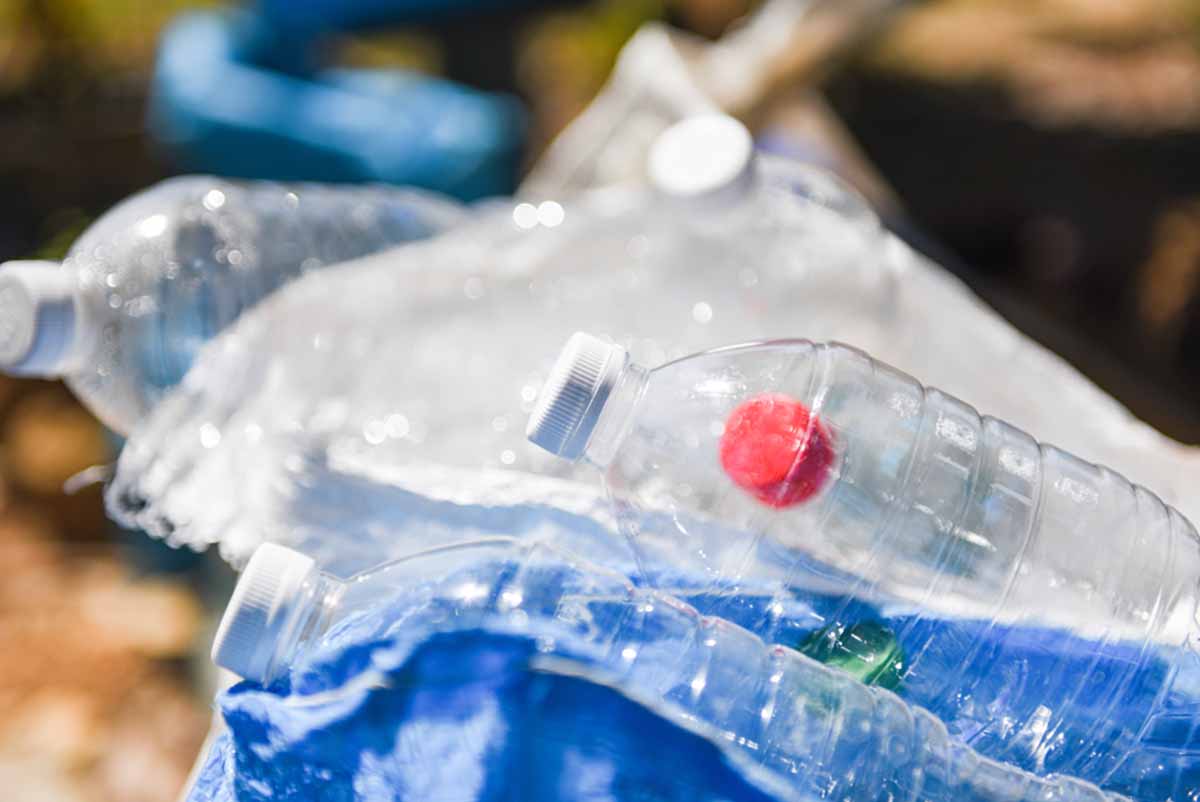
The report from the Center for International Environmental Law details effects of plastic pollution and provides tools for local governments to pursue compensation. | Poring Studio/Shutterstock
The Center for International Environmental Law has released a report detailing how local governments can pursue compensation for the effects of plastic pollution, mostly via legal action against plastic producers and brand owners.
“States and cities are on the front lines of the growing plastics crisis and the mounting costs it imposes on governments and economies,” said Carroll Muffett, CIEL president, in a press release announcing the “Making Plastic Polluters Pay” report.
“From increased waste management and infrastructure costs, to lost revenues for tourism and fisheries, as well as rapidly growing health costs from pervasive plastic pollution, states and communities are sacrificing budgets, resources and revenues to the plastics crisis,” she added.
The report, which describes the effects of plastic production and pollution, provides “the legal tools necessary to hold plastic producers and fast-moving consumer goods companies accountable for the harm they cause,” according to the CIEL press release.
“This report is a call to action, equipping local governments in the United States with the knowledge to initiate meaningful legal challenges that can lead to substantial reforms and ensure corporate accountability,” CIEL said in the press release.
The American Chemistry Council, an industry lobbying group, said the CIEL report encouraged legal action against the plastics industry. The report “is a disappointing and misdirected distraction from the significant research and investments in product design, collection and recycling infrastructure plastic makers are making to help prevent plastic pollution,” said Ross Eisenberg, president of the ACC’s plastics division, in an emailed statement.
The group’s official policy position on the ACC website states that “America’s Plastic Makers are committed to the goal of creating a circular economy in which 100% of plastics packaging in the U.S. is reused, recycled or recovered by 2040. This goal aligns with the U.S. Environmental Protection Agency’s goal of a national recycling rate of 50% by 2030. Shifting to a national strategy will help create a stronger, more resilient domestic recycling system and help address plastic waste in the environment.”
The ACC’s emailed statement included a link to a progress tracker from the Global Partners for Plastics Circularity, a group of associations and companies involved in the plastics industry.
The ACC also cited in its statement a McKinsey report on the environmental benefits of plastics, such as increasing efficiency and decreasing food spoilage.
“More still needs to be done, but through elements including infrastructure investment, R&D, stakeholder support and effective policy, we can make this a challenge of the past and retain the essential benefits plastics provide modern society,” Eisenberg said.
“We will continue to create products that make our vehicles safer and more efficient, enable renewable energy, preserve our food and underpin modern healthcare,” he said.
High-profile lawsuits
The past few years have seen a number of lawsuits attempting to hold companies responsible for what may be misleading recycling claims and for plastic waste.
In June, the City of Baltimore sued PepsiCo, Coca-Cola and other companies to recoup costs associated with mitigating plastic pollution. Three consumers filed suit against Colgate-Palmolive in August to address its marketing claims regarding the recyclability of toothpaste tubes. And in November, the New York state attorney general alleged in a lawsuit that PepsiCo was “harming the public and the environment with its single-use plastic packaging.”
Last year Reynolds Consumer Products settled multimillion-dollar lawsuits – among several filed by both state attorneys general and private citizens – alleging that its PE recycling collection bags were unsuitable for curbside collection, contrary to Reynolds’ claims.
As a result, Reynolds agreed to change advertising language for its Hefty and Great Value recycling bags, though the company denied that its language was deceptive or illegal.
Beverage company Keurig Dr Pepper also has come under fire for recycling claims regarding its coffee pods, and it continues to try to make them more recyclable. The company settled two suits in 2022 for a combined total of nearly $13 million.

